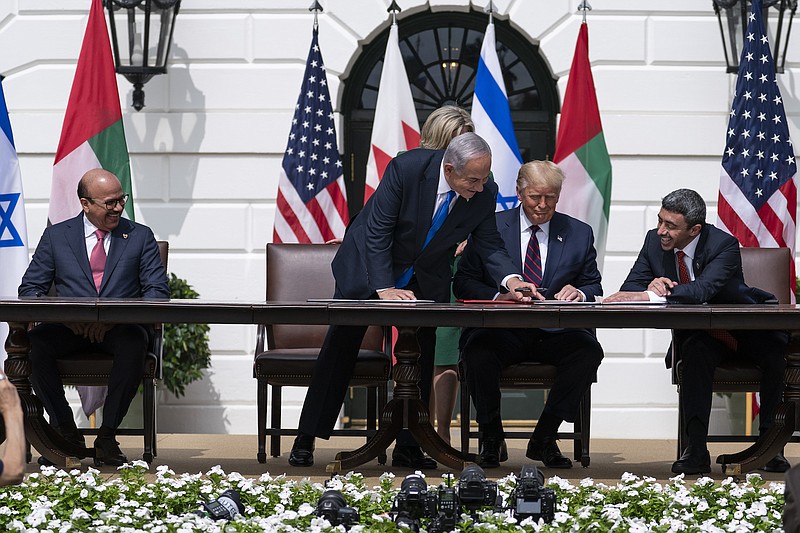For years, the Trump administration's peacemaking efforts in the Middle East have been the object of relentless derision in elite foreign-policy circles, some of it justified. Yet with Friday's announcement that Bahrain would join the United Arab Emirates as the second Arab state in 30 days to normalize ties with Israel, the administration has done more for regional peace than most of its predecessors, including an Obama administration that tried hard and failed badly.
There are lessons in this, at least for anyone prepared to consider just how wrong a half-century's worth of conventional wisdom has been.
At the heart of that conventional wisdom is the view, succinctly put by U.N. Secretary General António Guterres in February, that "resolving the Israeli-Palestinian conflict remains key to sustainable peace in the Middle East." Untie that Gordian knot, so the thinking goes, and the region's many problems become easier to solve, whether it's other regional conflicts or the anti-Americanism that feeds international terrorism.
That thinking was always dubious - what, for instance, did the Iran-Iraq War, in which a million people or more died, have to do with Israelis and Palestinians?
The rise and fall of ISIS, civil war in Syria and anarchy in Libya, Turkey's aggression against Kurds, proxy battles and hunger in Yemen, political turmoil and repression in Egypt and Iran, the bankruptcy of the Lebanese state, the plight of Middle Eastern refugees - if any of these catastrophes have something in common, it's that they have next to nothing to do with the Jewish state or its policies. One may still hope for a Palestinian state, but it won't save the region from itself.
What would? The best option is an alliance of moderates and modernizers - anyone in power (or seeking power) who wants to move his country in the direction of greater religious and social tolerance, broader (that is, beyond energy) economic development, less preoccupation with ancient disputes, more interest in future opportunities. Such an alliance is the only hope for a region being sucked into the maw of religious fanaticism, economic stagnation, environmental degradation and perpetual misrule.
Now this alliance may finally be coming into being. Unlike Israel's peace with Egypt and Jordan - both based on strategic necessity and geographic proximity - the peace with the Emirates and Bahrain has no obvious rationale, even if a shared fear of Iran played a role.
The larger factor is shared aspiration. Israel is the most advanced country in the region because for seven decades it invested in human, not mineral, potential, and because it didn't let its wounds (whether with respect to Germany in the 1950s or Egypt in the 1970s) get the better of its judgment.
The choice for the Arab world is stark. It can follow a similar path as Israel; be swallowed by Iran, China, Russia, Turkey or some other outsider; or otherwise continue as before until, Libya-like, it implodes.
As consequential as the peace deals themselves is the Arab League's refusal to condemn them, eliciting a furious Palestinian reaction. That's not surprising: It means the Palestinian grip over the league's diplomatic agenda may finally be loosening.
A final point about these deals: This wasn't supposed to happen. Not under the leadership of Israel's supposedly bellicose Benjamin Netanyahu; certainly not through the diplomatic offices of the usually amateurish Trump administration. Luck and timing played a part, as they always do.
But it behooves those of us who are so frequently hostile to Netanyahu and President Donald Trump to maintain the capacity to be pleasantly surprised - that is, to be honest. What's happened between Israel and two former enemies is an honest triumph in a region, and a year, that's known precious few.
The New York Times
